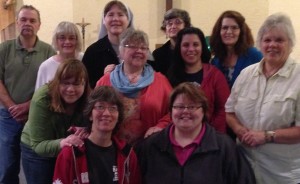 Writer’s block.
Writer’s block.
I don’t believe in it.
Okay, I’ll hedge that a bit.
All writers have moments when the words don’t come, or they have to be pried out of our brains like candy out of a three-year-old’s grasp. I do acknowledge that fact. Those moments are not fun.
Those moments are always uncomfortable, even anxiety-provoking.
“Writer’s block” is a great excuse when you need one.
But I’ve learned that when I run up against the dreaded blank-page-combined-with-blank-brain syndrome, rather than “try harder,” I need to dig deeper.
For me, writer’s block is a symptom, not a disease. It almost always shows up when something else is wrong.
I’ve run up against it twice in the past couple of weeks. The first time, I was working on revisions to a book length manuscript. The rut began to form when I tried to revise in accordance with a critique partner’s suggestions. Mind you, there was nothing at all wrong with her suggestions; I understood and agreed with them. And yet the more I tried to comply, the deeper the rut became, until I was stuck.
When I finally stepped back and reevaluated, I decided to trust my own instincts and disregard the advice. The floodgates opened. Ta-da! No more writer’s block.
The other instance was when I was trying to write a post for a guest blog appearance. I got so tied up in how awesome all the other guest-bloggers were (and how hard it was going to be to compete with them) that I couldn’t think of a subject to write about. Fear of the unknown kept my fingers off the keyboard, with that blasted cursor mocking me.
And then I recognized what I put in parentheses in that paragraph.
I know better than that! At a simple decent-human-being level, or at the level of maturity befitting the color of my hair, I know better than to compare myself to others. And at the level it matters most, as a Catholic Christian believer, I know that we are all given the exact gifts God wants us to have. I can entertain exactly zero envy over the other bloggers’ humorous or clever or passionate posts. Once that flash of insight came, I was able to write.
Here are some of the tools for dealing with writer’s block I’ve discovered over the years, none of them my own, by the way. I credit the many authors who traveled ahead of me with these ideas!
1. Give yourself permission to write badly – and then write. The words you tap out on your computer are not etched in stone. You can delete what doesn’t work later, so just start putting words on paper, so to speak. I’ve often started out with “I have no idea what to write next, but I have a sense that such-and-such character might do/say this, or that plot idea might happen.” Within a few sentences, it usually morphs into something I can work with. The unanticipated gift of this method is that I often discover a gem that livens up the story.
2. Get out of your own way. Figure out what’s wrong. If there are underlying issues, acknowledge and face them. If fear has you paralyzed, stare it in the face and then stomp over it. We are all insecure. We all fear failure, success, taking a risk, criticism, making a commitment. Deal with what ails you, and then write anyway. If there’s something wrong with the manuscript, try writing the scene from a different character’s perspective or go a different direction for a while.
3. Change your scenery. Get up and walk away from the computer. (I can’t tell you how many times a solution came to me as soon as I shut down the laptop and stood up!) Even better, go outside. Smell the flowers. Let the sunshine warm your face. Listen to the raindrops on the street, the leaves, the roof. Go to a museum, or a movie. Go to the zoo and watch people watching animals. Go to the mall and make up outrageous stories about the people walking by.
4. Get physical. Go for a walk or a hike. Dance. Play a game of tennis or hopscotch or go for a bicycle ride. Anything to get the blood flowing in your muscles—and in your brain.
5. Write something else. Write a thank you note or an email or an honest-to-gosh real live, old-fashioned letter! Free write, or use a writing prompt. Write fiction if you’re stuck on a nonfiction piece, and vice versa. Interview your characters; ask them what they want you to know.
6. Do something creative with your hands. Draw or paint a picture. Do it with your non-dominant hand. Make a quilt square or embroider the beginning of a pillowcase design, if you like fabric arts. Cook something really yummy from scratch, and enjoy the aromas and textures along the way. Garden, whether it’s indoor or outdoor. Write something longhand. Try that with your non-dominant hand!
7. Engage with another human being. Hey, we’re writers. It’s a solitary activity. Sometimes we forget how much we need to connect with others. Take a break and play with a child. Talk with your spouse and make eye contact. Volunteer, officially, or just lend a helping hand. Go out for coffee with a friend, or invite another family over for dinner.
Rather than a curse, writer’s block can be a blessing. Listen to it. Let it tell you what you need to do, or not do.
Just don’t let it be an excuse to keep you from your passion.
How do you identify writer’s block? What strategies do you employ to get past it? What have you learned from it?
 In those days a decree went out from Caesar Augustus that the whole world should be enrolled. This was the first enrollment, when Quirinius was governor of Syria. So all went to be enrolled, each to his own town. And Joseph too went up from Galilee from the town of Nazareth to Judea, to the city of David that is called Bethlehem , because he was of the house and family of David, to be enrolled with Mary, his betrothed, who was with child. While they were there, the time came for her to have her child, and she gave birth to her firstborn son. She wrapped him in swaddling clothes and laid him in a manger, because there was no room for them in the inn.
In those days a decree went out from Caesar Augustus that the whole world should be enrolled. This was the first enrollment, when Quirinius was governor of Syria. So all went to be enrolled, each to his own town. And Joseph too went up from Galilee from the town of Nazareth to Judea, to the city of David that is called Bethlehem , because he was of the house and family of David, to be enrolled with Mary, his betrothed, who was with child. While they were there, the time came for her to have her child, and she gave birth to her firstborn son. She wrapped him in swaddling clothes and laid him in a manger, because there was no room for them in the inn.










